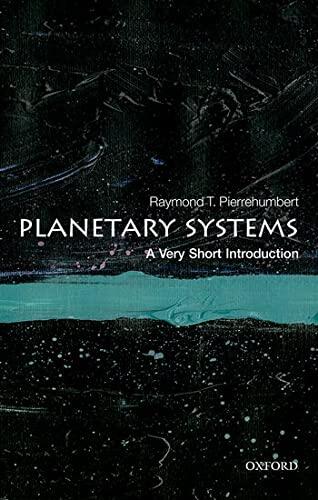
Planetary Systems: A Very Short Introduction
아직 평점이 없습니다
Science & Technology
형식
페이퍼백
페이지
144
언어
영어
출판됨
Feb 1, 2022
출판사
Oxford University Press
ISBN-10
0198841124
ISBN-13
9780198841128
설명
In a universe brimming with celestial wonders, the exploration of planetary systems reveals an astonishing diversity that extends far beyond our own Solar System. This concise exploration delves into the formation and evolution of these distant worlds, unraveling the complex physical processes that govern their existence. With recent advancements in technology, astronomers now have the capacity to detect exoplanets, further igniting curiosity about the cosmos and our role within it.
The narrative emphasizes the significance of understanding planetary systems not just as isolated bodies, but as integral components of their host stars' environments. Each planet, with its unique characteristics, contributes to the rich tapestry of a star's ecosystem, raising questions about how life might exist elsewhere in the universe. The interplay of gravitational forces and atmospheric conditions paints a vivid picture of what may be lurking in the shadows of distant suns.
Readers are invited to travel through time and space as they learn about the diverse classifications of planets, from gas giants to rocky worlds, and everything in between. This exploration challenges long-held notions and encourages a broader perspective on the possibilities that await in the galaxy. Through engaging examples, the discussion inspires awe and fosters a deeper appreciation for the scientific journey of discovery.
Ultimately, this brief yet profound introduction serves as a gateway into the wonders of planetary science. It equips readers with the knowledge to ponder the mysteries of the universe, compelling them to think about what else might lie beyond the horizon, waiting to be uncovered.
The narrative emphasizes the significance of understanding planetary systems not just as isolated bodies, but as integral components of their host stars' environments. Each planet, with its unique characteristics, contributes to the rich tapestry of a star's ecosystem, raising questions about how life might exist elsewhere in the universe. The interplay of gravitational forces and atmospheric conditions paints a vivid picture of what may be lurking in the shadows of distant suns.
Readers are invited to travel through time and space as they learn about the diverse classifications of planets, from gas giants to rocky worlds, and everything in between. This exploration challenges long-held notions and encourages a broader perspective on the possibilities that await in the galaxy. Through engaging examples, the discussion inspires awe and fosters a deeper appreciation for the scientific journey of discovery.
Ultimately, this brief yet profound introduction serves as a gateway into the wonders of planetary science. It equips readers with the knowledge to ponder the mysteries of the universe, compelling them to think about what else might lie beyond the horizon, waiting to be uncovered.